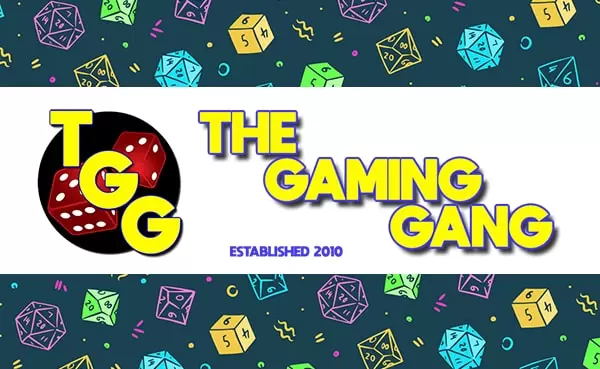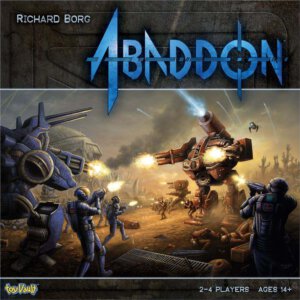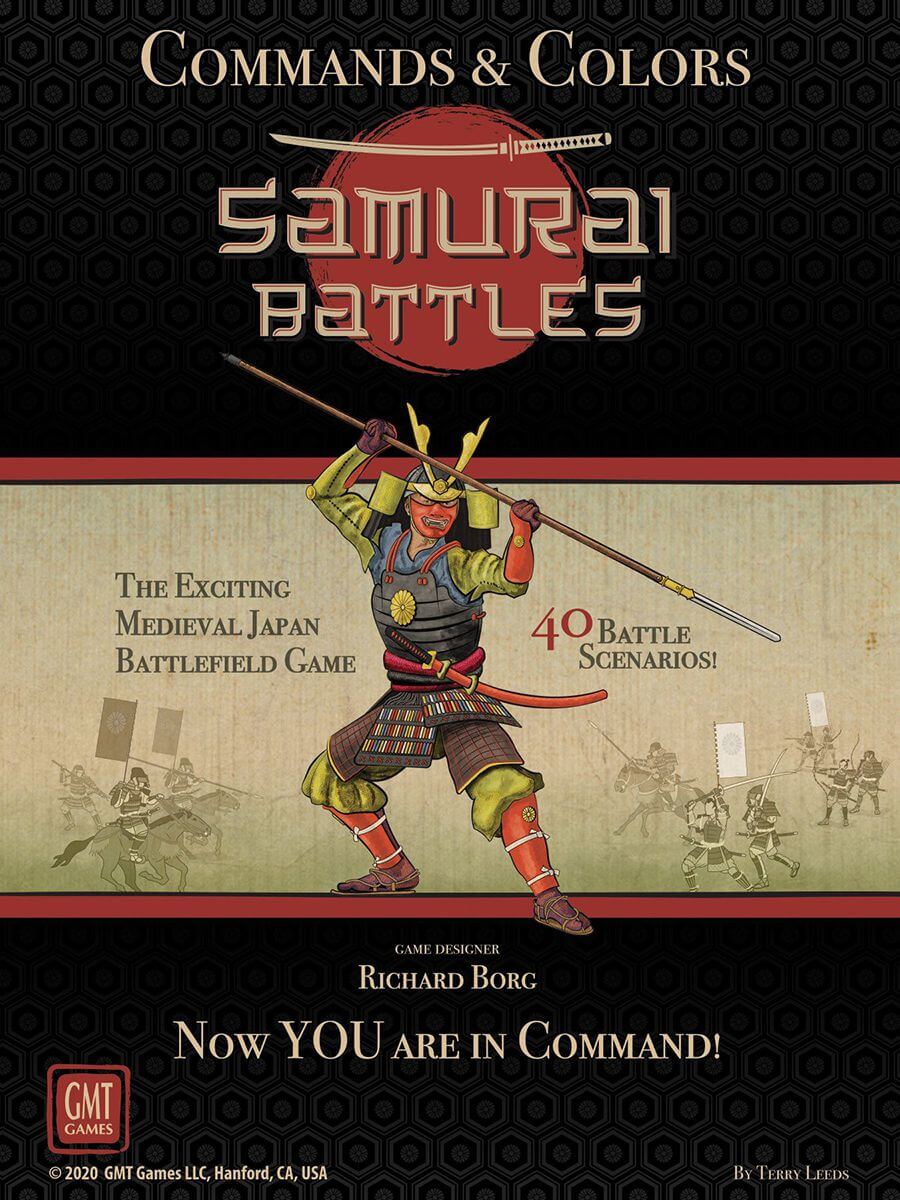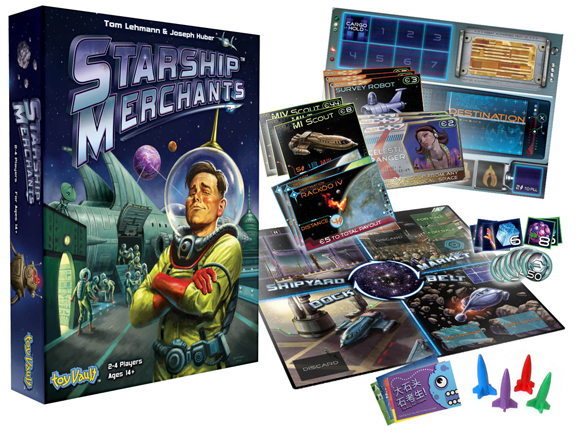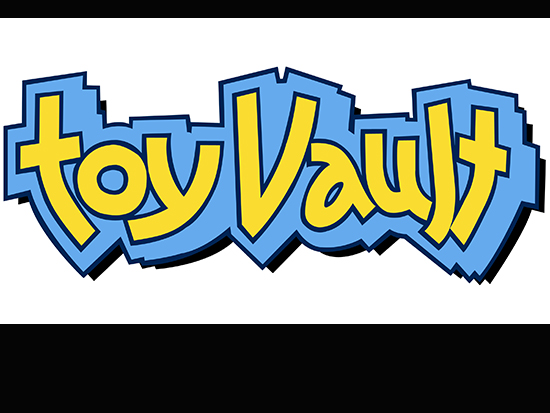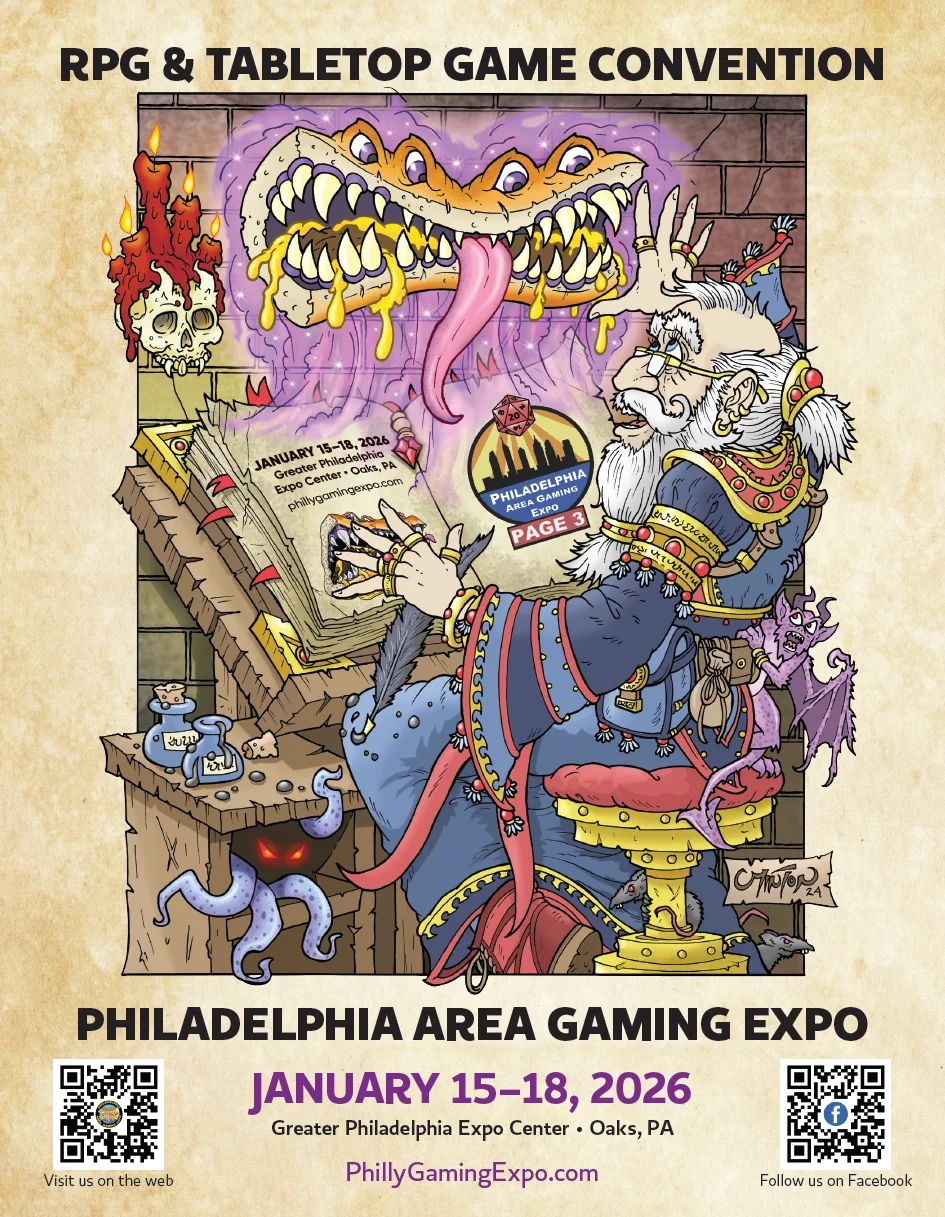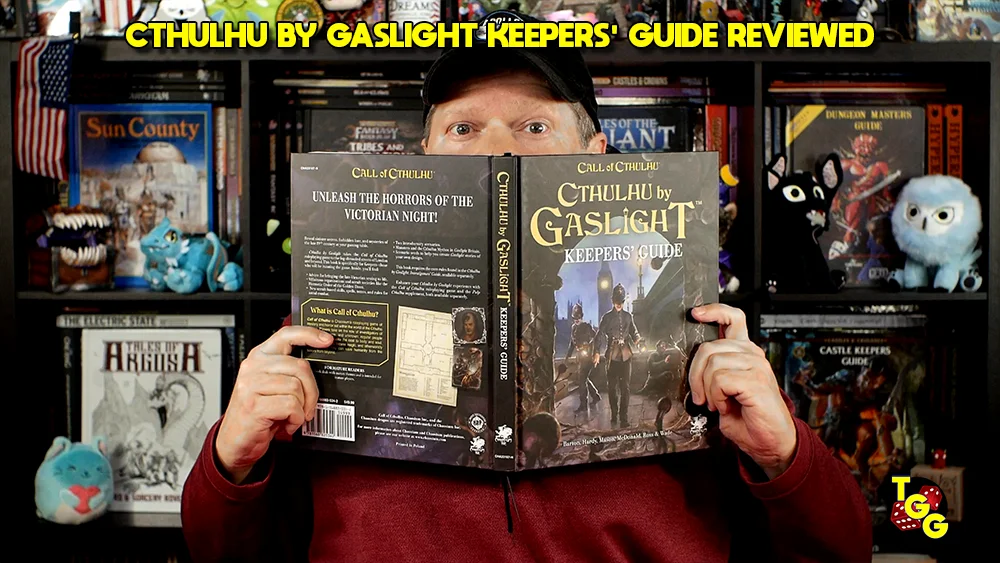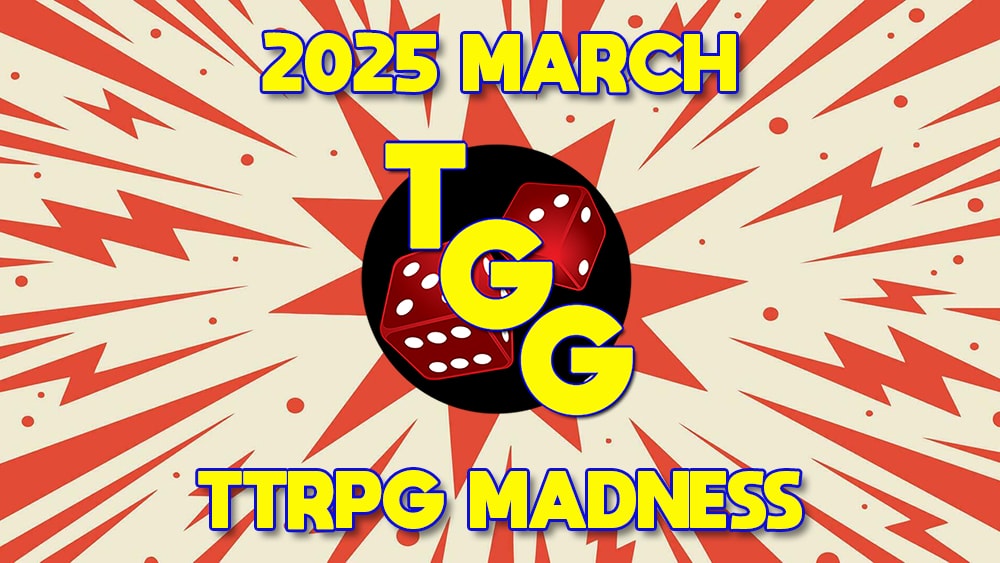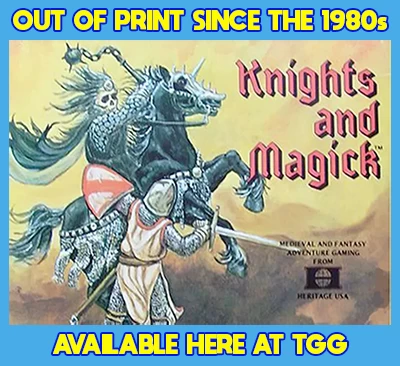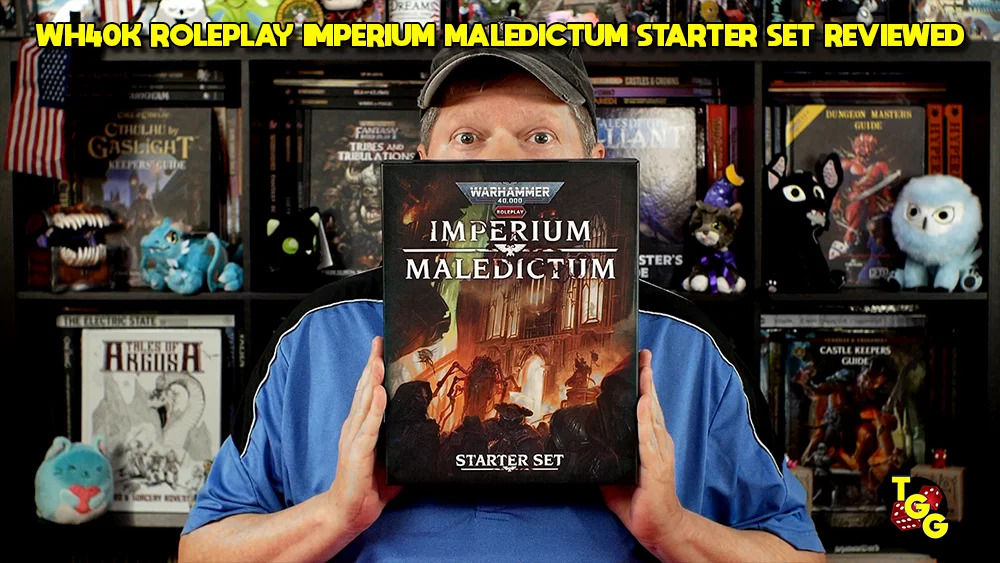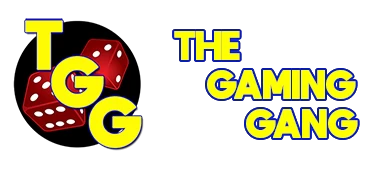Publisher: Toy Vault
Designer: Richard Borg
Year: 2012
Players: Two to four players
Ages: 14+
Playing Time: 45 to 60 minutes
Genre: Light Strategy Mecha Battle Game
MSRP: $79.99
Abaddon is the latest Richard Borg design and, as I’m sure others who have played the game, I’m a bit curious as to why it doesn’t fly a Commands and Colors banner above the title. It could be the fictional SF setting or then again maybe it’s the limited strategic options employed by the design but, either way, Abaddon stands as an extremely light or introductory mecha style game intended for a beer and pretzels crowd.
The first thing you’ll notice once you open the box is that the minis included are pretty nice. I would bet they’d paint up rather well and add an extra dimension to play. But as far as the rest of the components are concerned? They certainly aren’t anything to write home about but they aren’t horrible. I will mention I found the terrain debris to be really on the cheesy side though. Don’t get me started on the weird clear plastic “victory point cups” as it looks as if they may have contained Jello or something at some point. Truthfully, just about everything outside of the minis has a serious “cheese” factor from the above mentioned cups all the way down to the graphic style of the title. Plus Richard Borg must love stickers because you have to attach stickers to the Activation dice as well as the minis and the stickers for the minis are especially small and fidgety to line up straight.
The rules are short and to the point so they don’t require a lot of pondering over. Once you begin tackling the rules you’ll get the feeling of Abaddon coming across as a bit of a throwback sort of game; something you’d have played in line with some of the meatier 1990s Milton Bradley titles or similar ilk. And by meatier I don’t mean Axis and Allies people! Actually the nostalgic feeling hit myself as I was pulling components out of the box but really took firm hold as I got into the rules.
The story behind Abaddon is simple enough and rather well worn: a mysterious power element, Feronium, is discovered on a desolate and far flung planet so every corporation and their brother sets off to strike it rich by mining the stuff. Humanity gets along about as well in the future as they do now so both the corporation and settelrs vying for control of the Feronium soon find themselves battling over the precious commodity and the planet. Add to this the fact there’s some left over alien technology from the planet’s previous inhabitants and it’s a mad scramble to jury rig whatever can be scavenged with the available machinery on hand to create war machines. There isn’t a whole lot of backstory to the game as much of the tale is told in the space of a few paragraphs.
Setup is quick as you’ll consult one of the fifteen scenarios, select the minis that comprise the forces, lay out the terrain pieces and units on the board as shown, shuffle both the Weapon System and Wild Fire decks, and draw your hand of Weapon System cards to begin.
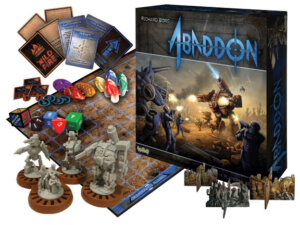
One of the first items most gamers will find stands out is there are only four types of units. Yep… Here’s a mecha game without a lot of mecha. In Abaddon the mechs are called Links and there are three different types of these as well as infantry. Each Link is different enough in its capabilities to make them interesting although I have to say I found the little slots on the bases where you insert Power Crystal counters, to indicate how many hits the Link can take, to be a pain and overall a sloppy design element.
As in many of Mr. Borg’s designs, you can’t just go about moving and attacking with all your units at one time. Normally this is modeled by utilizing command cards which you can play (ala Commands and Colors) but, in Abaddon, Borg has abandoned that mechanic and replaced it with the rolling of Activation dice. At the beginning of each turn you’ll roll to see what types of units you’ll be able to issue orders to and woe to the player who rolls a lot of the same type but doesn’t have any of that type left. Sure, this doesn’t happen too often but enough to make you scratch your head as to how these combat units communicate in the future. Are these guys running out there with two tin cans connected by some string?
Each die is assigned to a unit of that type in order to activate that unit so it may move and fight. If you can’t activate a unit it will just sit there unless it comes under attack which at that point it may counter attack – as long as it has line of sight and the attacker is not adjacent to it. Movement is of the simple move so many spaces variety and terrain actually has no real effect on the proceedings outside of blocking line of sight.
Combat is fast and furious and for direct line of sight firing the attacking player will select a Weapon System card from his available hand of cards and place it face down near the miniature that’s making the attack. These cards have an arrow on the backside and you point the arrow in the direction of the target. I found this to be rather clunky and for the life of me can’t understand what’s the purpose of cluttering up the map with these cards. The defender, if able, then places one of their Weapon System cards facedown pointing toward the attacker. Then each player rolls a die of the type indicated by the unit’s stats (d6, d8, or d10), add any modifiers such as effects of the Weapon System card and the highest score wins. The loser has to remove a Power Crystal (or two if the total was twice that of the other player) and if they’ve out of crystals they’re out of luck and destroyed.
Other rules include indirect fire, close combat, critical hits and so forth. The critical hits are interesting as whenever a one is rolled a Wild Fire card is drawn and the effects applied to the unit receiving the critical. These cards can add additional damage (the loser of the die rolls still takes damage as normal) or some other effect all the way up to knocking the target out of action.
Various scenarios are included in Abaddon but most break down into blow the hell out of the other guy and the game ends when the victory conditions of the scenario are met. For the most part it’s simply a VP total you’re looking to achieve. This is where the oddball Victory Point Cup comes into play. As you damage and knock out your opponents Links and infantry you receive the Power Crystals and such and place them into the cup. Yet at the end of each turn you check to see if the victory point conditions have been met so, if you were to follow the rules, you’d be dumping out the cup of counters every turn to add them up. Once again this is something that makes no sense so we just kept the counters to the side so we could easily reference the total as we played.
Finally, although the game states it’s for two to four layers, it really is a two player game all the way. With four players, albeit they comprise two teams, things don’t seem to play out as smoothly as they should so I recommend keeping this a head to head matchup.
I’d take a stab by this point the reader believes I’m going to savage Abaddon but that would be an incorrect assumption. Sure the game has some strange, nearly counterintuitive mechanics and there isn’t much depth overall. I’ll also mention strategy doesn’t come too far to the fore although there are a few tricky moves you can pull from time to time but the game isn’t designed to test your inner Rommel or Schwarzkopf but to bring out that twelve year old we have dying to get out. I had a lot of fun playing even when I thought for sure I wasn’t going to dig the game. Add to this everyone else who played was laughing and talking schmack throughout and you know this is the sort of title you can break out with your tween or teen or a newbie and enjoy yourselves. Although the nearly $80 price tag will be a turn off for many considering the sort of game this is…
If you open the box knowing this is a huge luckfest and the name of the game here is robots blowing each other up, Abaddon should easily provide a smile for those who don’t take their gaming overly serious.
[rwp-review id=”0″]
- Warhammer 40,000 Roleplay: Imperium Maledictum Starter Set Reviewed - Mar 31, 2025
- The RiverBank Roleplaying Game Launches on BackerKit - Mar 31, 2025
- Land of Eem: The Mucklands Sandbox Campaign Setting Reviewed - Mar 30, 2025
